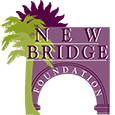 On the journey to recovery, a wide range of therapeutic techniques can be used as part of a holistic treatment plan. Dialectical behavior therapy (DBT) is one such technique, and it has been shown to be highly effective in helping individuals process, manage, and cope with their emotions. DBT was developed by Dr. Marsha Linehan in the late 1980s as a modified form of cognitive-behavioral therapy. She was interested in developing a treatment for individuals with borderline personality disorder and for chronically suicidal individuals. Over time, it was discovered that this therapy was beneficial not only for those individuals but also for individuals with a variety of other mental health issues, including substance abuse.
On the journey to recovery, a wide range of therapeutic techniques can be used as part of a holistic treatment plan. Dialectical behavior therapy (DBT) is one such technique, and it has been shown to be highly effective in helping individuals process, manage, and cope with their emotions. DBT was developed by Dr. Marsha Linehan in the late 1980s as a modified form of cognitive-behavioral therapy. She was interested in developing a treatment for individuals with borderline personality disorder and for chronically suicidal individuals. Over time, it was discovered that this therapy was beneficial not only for those individuals but also for individuals with a variety of other mental health issues, including substance abuse.
New Bridge Foundation®’s dialectical behavior therapy group can be a helpful experience for clients working toward recovery. Call 866.772.8491 today to get started with addiction counseling services in our center.
Analyzing Behavior Patterns Through Dialectical Behavior Therapy
Many people, including those who struggle with addiction, struggle with overwhelming emotions. Dialectical behavior therapy is based on the concept that behaviors are driven by emotions, so it focuses on identifying and understanding the patterns of emotion-driven behaviors. During DBT group, individuals will learn to practice self-acceptance while also learning new skills for managing their emotions more effectively.
Strategies Used in Dialectical Behavior Therapy for Addiction
Dialectical behavior therapy takes a step-by-step approach to changing behavior. During group counseling sessions, individuals will learn to develop new skills for managing their emotions and resolving conflicts. These proactive strategies include:
- Mindfulness – Addiction can cause individuals to become hyper-focused on their cravings and desires, so mindfulness can be a powerful tool for regaining control. In DBT group, clients learn how to remain aware of the present moment without judging themselves or their emotions.
- Distress tolerance – Being able to tolerate distress is an important part of developing healthy coping strategies. During DBT group, clients are taught skills for managing uncomfortable emotions without engaging in unhealthy behaviors such as substance misuse,
- Interpersonal effectiveness – Dialectical behavior therapy also focuses on improving communication skills. Clients learn how to express their needs and engage in assertive conversations with others while also maintaining relationships.
- Emotional regulation – Understanding and managing emotions is an important part of coping with addiction. During DBT group, clients are taught to identify their emotions and develop strategies for effectively regulating them.
No matter where you are in your recovery journey, New Bridge Foundation®’s dialectical behavior therapy group can help you develop new coping techniques.
Goals of Dialectical Behavior Therapy
The ultimate goal of dialectical behavior therapy is to help participants improve their quality of life. By learning new skills for managing emotions and improving communication, clients can gain greater control over their behaviors and make healthier decisions.
As part of an addiction treatment program, dialectical behavior therapy can be an effective tool for helping individuals work through their underlying emotions and find lasting recovery. From the moment you walk through our doors, New Bridge Foundation®’s professionals will work with you to create a customized treatment plan tailored to your individual needs. These individualized treatment plans often include assignments that will help increase emotional management skills through DBT techniques.
Dual Diagnosis and Dialectical Behavior Therapy
Many people who are trying to overcome an addiction to substances also have a co-occurring mental health diagnosis. Dialectical behavior therapy is an evidence-based therapy that has been found to be effective in treating substance use disorder, depression, post-traumatic stress disorder, traumatic brain injury, binge eating, mood disorders, and borderline personality disorder. It has also been shown to assist the chronically suicidal.
Call New Bridge Foundation® Today to Get Started
New Bridge Foundation® provides programs and therapies crucial to achieving lasting recovery. From therapies that include DBT to programs that are specialized for different populations, we have the tools to make dreams of recovery a reality. With over 50 years of experience, we have been named one of America’s “Best Addiction Treatment Centers” for the past four years, per a survey conducted by Newsweek Magazine.
To learn more about dialectical behavior therapy and how it can help you or a loved one recover from addiction, call New Bridge Foundation® today at 866.772.8491 or reach out to us online. Help is available to those who reach out for it.
